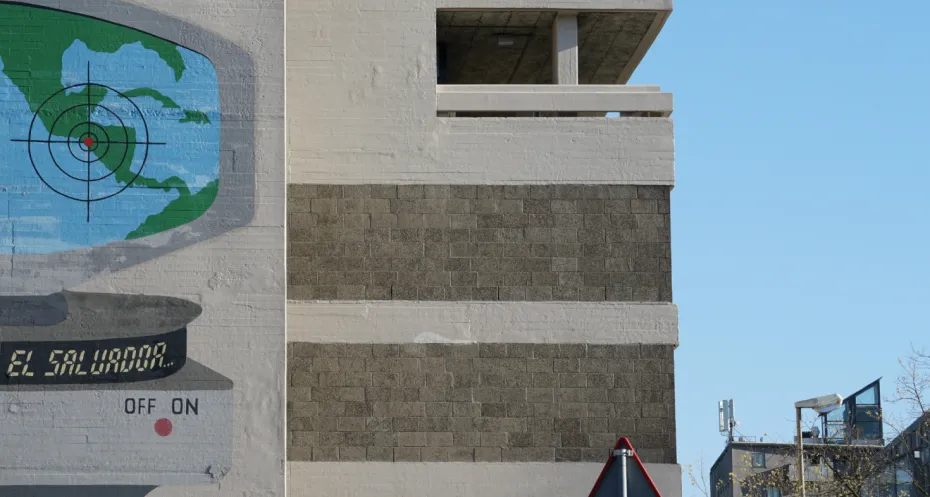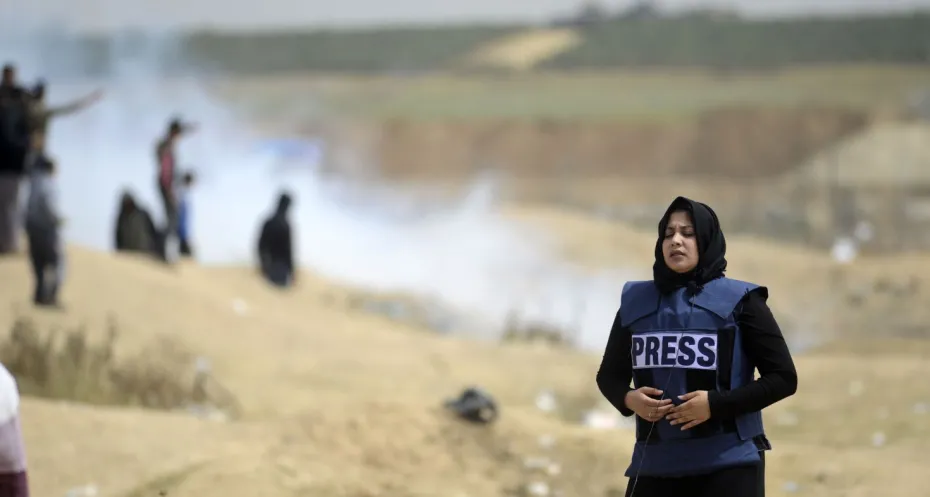Report shows: Project ‘Covid-19 Response in Africa’ contributed to the survival of numerous media
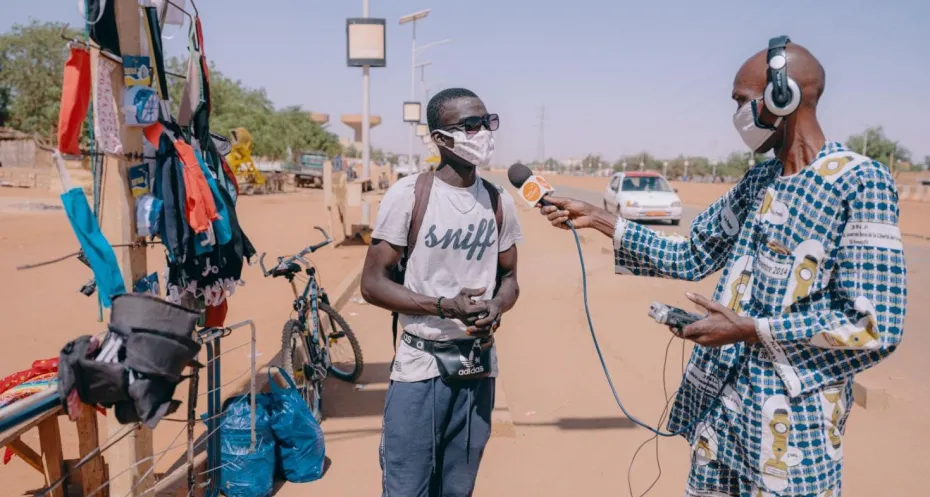
1 August 2020 ‘Covid-19 Response in Africa – Together for Reliable Information’ started, providing emergency support to the impact of the Covid-19 crisis on access to reliable information in Africa. An evaluation now shows the great success of this project in helping dozens of media organisations to continue their vital work.
As the Coronavirus outbreak began in early 2020, the EU asked media and development organisations to work together to provide emergency support for the anticipated impact of the pandemic in Sub-Saharan Africa. Even though the impact of the pandemic in Africa was lower then assumed, especially compared to the impact in Europe, partners and media organisations indicated that emergency support was highly needed to stay safe and active.
A grant was awarded to a six-partner consortium, led by Free Press Unlimited (FPU), and including International Media Support (IMS), Deutsche Welle Akademie (DWA), Fondation Hirondelle (FH), Reporters without Borders (RSF) and Article 19, with UNESCO as an affiliate partner. The project spans 18 months, ending on 31 January 2022, and was implemented in 17 countries in Sub-Saharan Africa.
The project’s overall objective was to better inform people on how to protect themselves against Covid-19. To do so, the project provided essential, timely support and materials to independent media and journalists in Sub-Saharan Africa. Because of this they could keep fulfilling their crucial role of providing quality and reliable information.
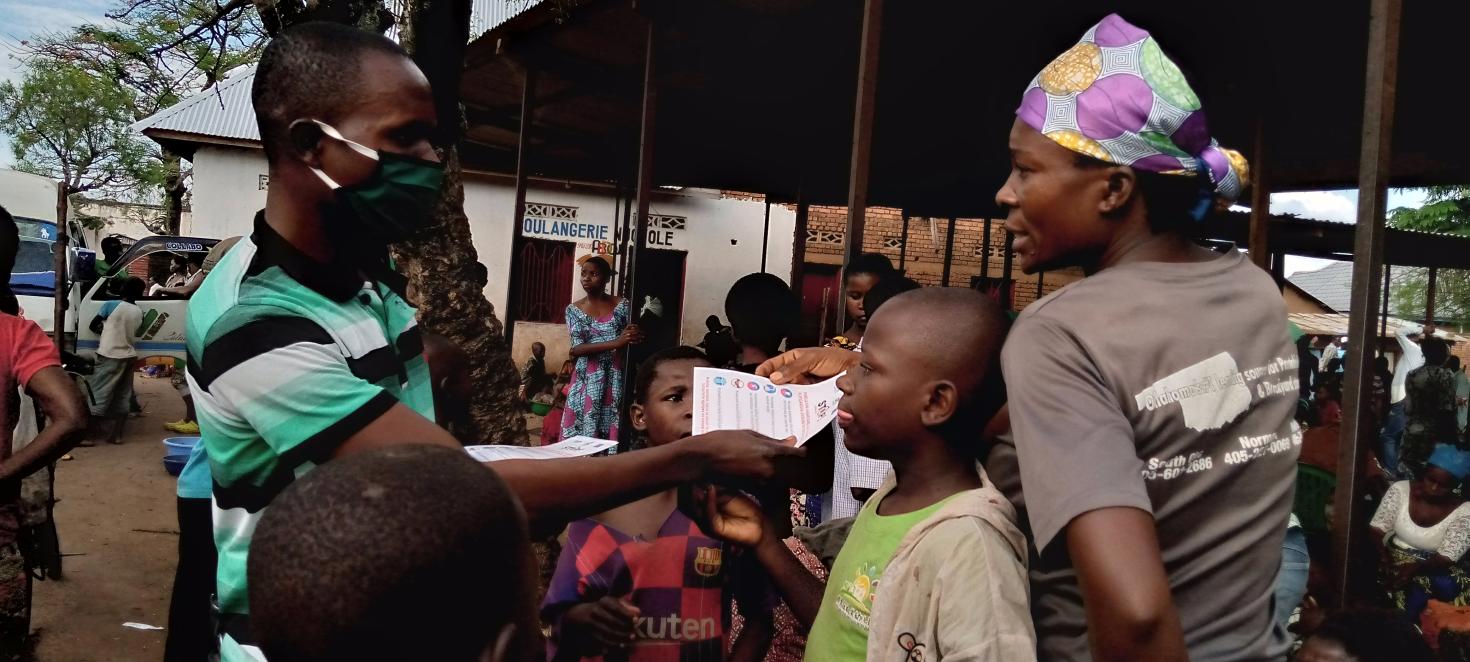
Timely, relevant and efficient
We are very happy to say that the evaluation, carried out by OECD/DAC, showed that this ambitious and complex project was a success, calling it ‘timely, relevant, and efficient’. The project efficiently addressed challenges posed by the pandemic, like the spread of misinformation with the creation of fact-checking workshops, and keeping journalists safe with the distribution of protection materials to media workers in target countries.
Considering that the project involved multiple organisations, 17 focus countries, and over 80 local partners, the project was efficient. Several local partners described the impact by noting that “a small amount of money covered a huge amount of content”.
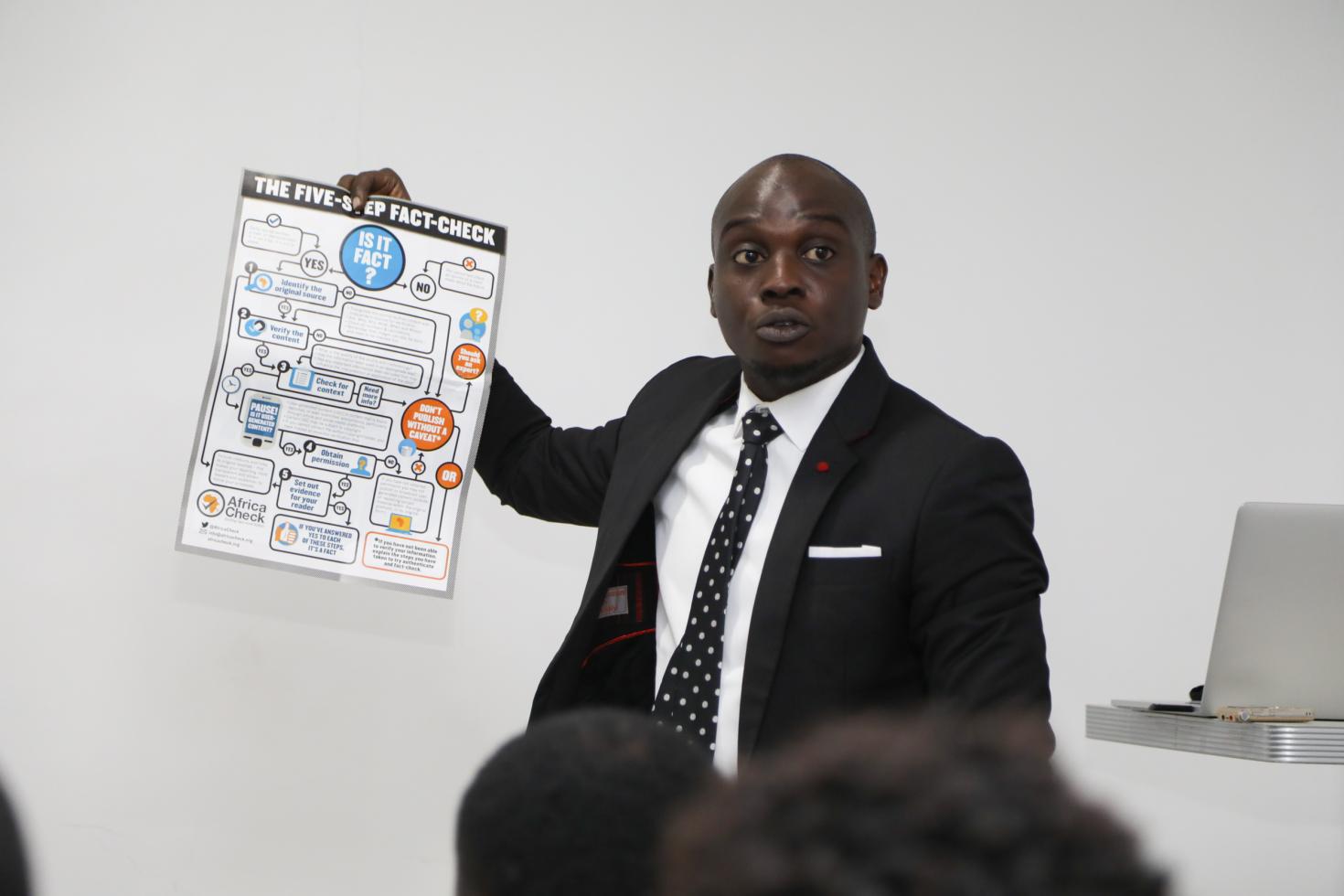
Sustainability for the future
The project provided numerous media organisations with emergency grants to not only help them survive, but make sure they could continue producing content. It was also combined with learning effective fact-checking and community engagement techniques, which helped them to ensure their communities had access to important, life-saving information.
The evaluator found that the project enhanced media’s sustainability for the future. Firstly because of the contribution to the survival of numerous media organisations that otherwise may have had to close. Secondly, because of the promotion and skills-building of fact-checking – a skill that can be brought to numerous other areas such as election reporting and health coverage.
An interesting extra outcome was the inclusion of gender equality. This project did not have a specific focus on gender, however, the evaluator found that the project successfully ensured that the interests, needs and priorities of both men and women were taken into consideration. Several local partners have noted that there were efforts made to reach women and that many of these were successful.
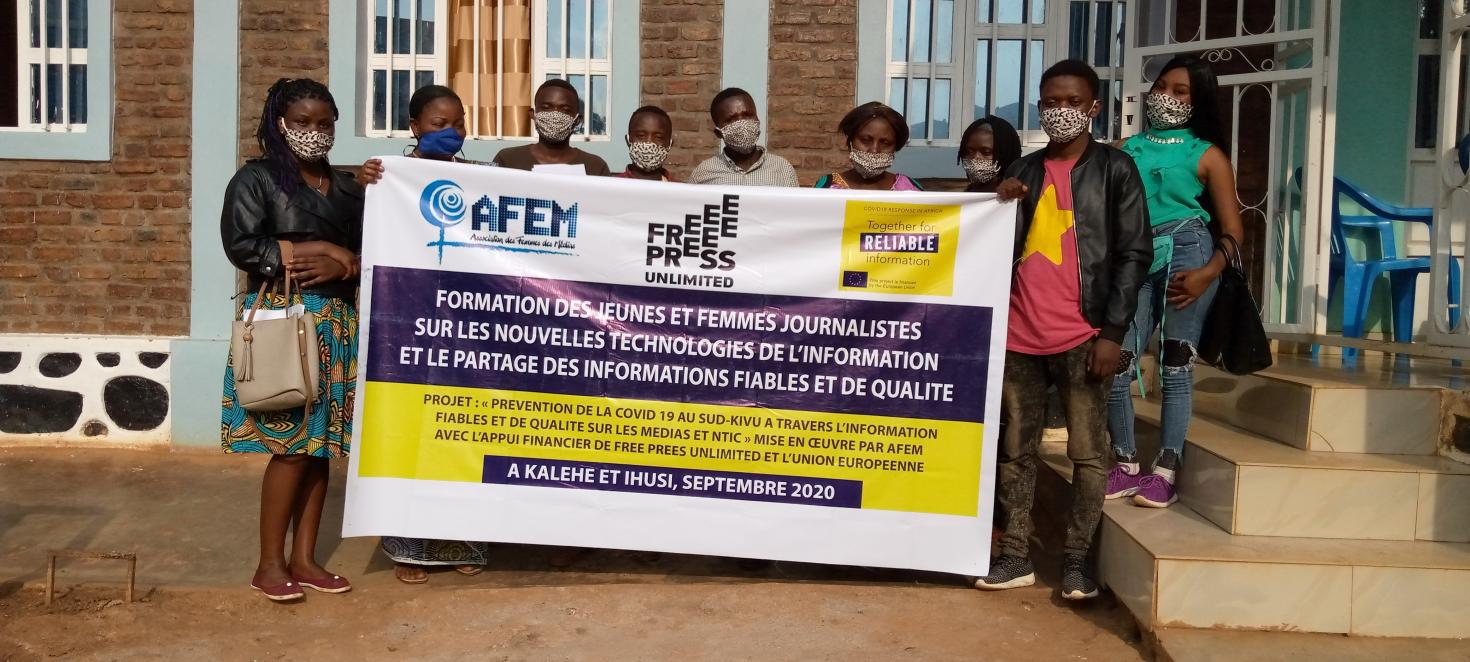
Lessons and recommendations
Of course there were also some challenges and lessons learned. Partners have noted challenges like Zoom fatigue, and lack of internet and/or adequate bandwidth for virtual trainings. One of the recommendations is to spread a training over a period of months as opposed to days, making virtual or hybrid training more attractive and effective. The project partners worked closely together on this project, which led to the insight that it is critical to continuously share information during the implementation of such a complex project.
Two more lessons learned in this project were that local expertise is available and can be used with excellent results, and that it is important to ensure the use of local languages so that vulnerable and marginalised audiences can be more effectively reached.
Read the full evaluation report here:
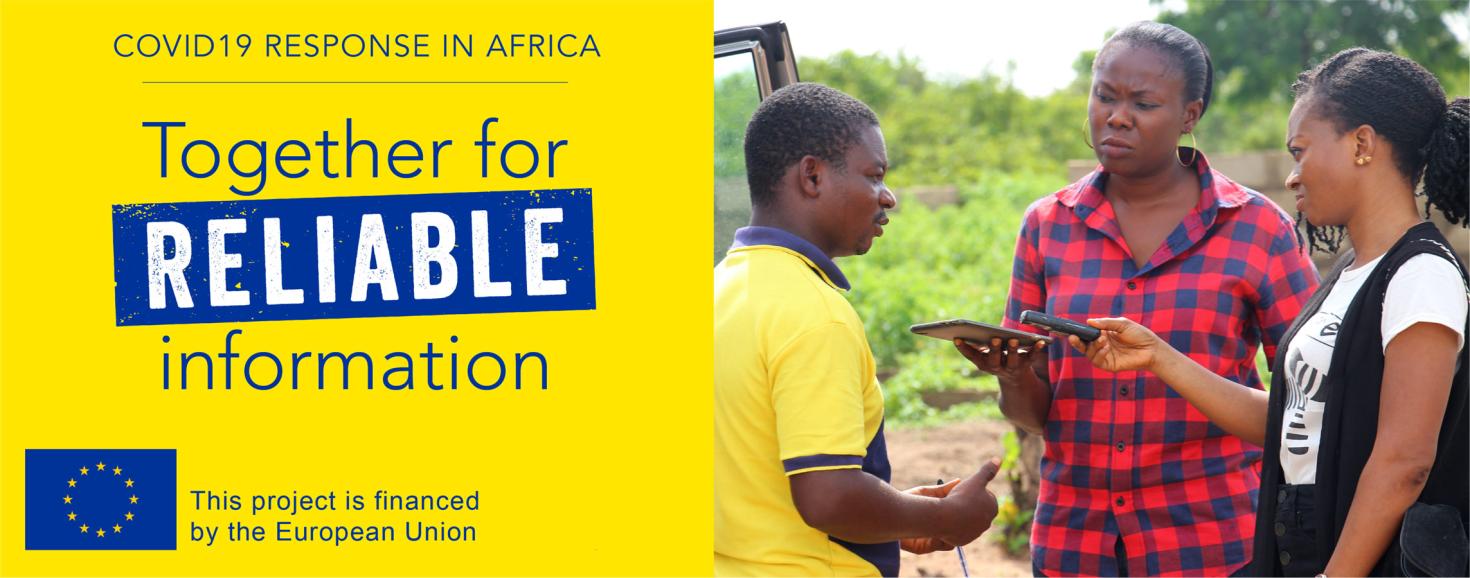
Photo in header: reporting during Covid times in Niger, courtesy of Studio Kalangou.

